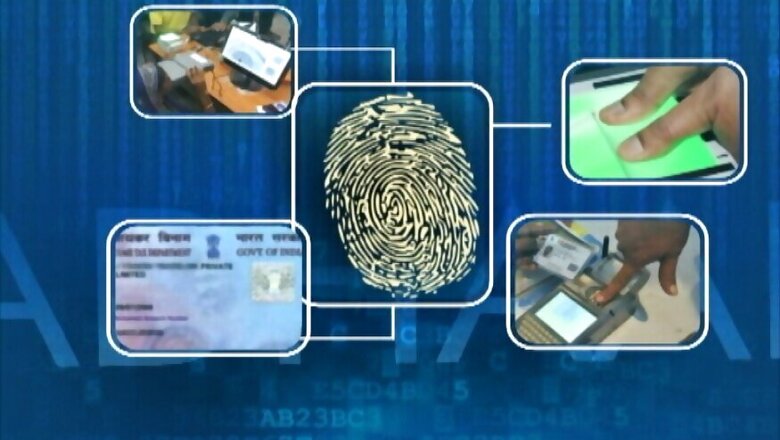
views
Today’s digital world has brought forward far more new challenges than we could think of. One of the key challenges in the digital world is trying to protect your privacy, from the prying eyes of the state and non-state actors. Hence, the relevance of privacy and its protection becomes far more topical in the context of digital ecosystem.
The Supreme Court of India has come up with a landmark, historic judgment. By means of the said progressive judgment, it has now been categorically held that the right to privacy is a fundamental right which is intrinsically an integral part of Article 21 of the Constitution of India and is amenable to all the protections guaranteed to such fundamental right by the Constitution of India. The effect of this 9-Judge Bench judgment is that this judgment categorically decides once and for all the existing legal position on privacy in India. This position is applicable to the concept of privacy, both in the physical world as also in the virtual and electronic world.
Why is the judgment so important?
This judgment is so important because India has never had a dedicated law on privacy. For lack of political will or otherwise, Indian legislators have refrained from coming up with the dedicated legislation on privacy. However, some work was done on draft privacy legislation by Department of Personnel & Training, Government of India a few years back, but said draft Privacy Bill went nowhere. Even the Indian Cyberlaw being the Information Technology Act, 2000 has failed to provide any adequate legal provisions to protect and preserve privacy. No wonder, the mother legislation on the digital format in India has chosen not to be a privacy law and hence does not have any detailed or comprehensive parameters for protecting privacy.
In the context of a digital and mobile ecosystem, privacy is already an evaporating concept. State and non-state actors are continuing to evade upon the privacy of digital users and netizen community on their own free will. In this context, the present judgment comes in as a breath of fresh air by upholding the right to privacy as a fundamental right under the Indian Constitution. T he Supreme Court, as the guardian angel of the Indian Constitution, has given a loud and clear message that the pure stream of ideals, for which the Indian Constitution stands, will continue to permeate every area of human activity and endeavor and that no state action will be allowed to impede or violate those constitutional provisions.
The net effect of the Supreme Court judgment is that any state action which is violative of an individual or person’s right to privacy can be challenged in the writ jurisdiction. The challenge can be preferred either before the Supreme Court under Article 32 or before the High Court under Article 226 of the Constitution of India. The net effect of this judgment is that in case if the digital privacy of a person is impacted by state action, the same can always be challenged in Court of law. This judgment effectively gives an effective, potent and efficacious legal remedy in the hands of digital citizens. The said judgment once again brings to the forefront the need for the Government to only interfere with the fundamental right to privacy of a person, in accordance with the procedure established by law. The said judgment has been given keeping in mind the current day ground realities. This becomes further evident when the following paragraphs of the judgment actually mirror the existing ground realities.
“Statutory provisions that deal with aspects of privacy would continue to be tested on the ground that they would violate the fundamental right to privacy, and would not be struck down, if it is found on a balancing test that the social or public interest and the reasonableness of the restrictions would outweigh the particular aspect of privacy claimed. If this is so, then statutes which would enable the State to contractually obtain information about persons would pass muster in given circumstances, provided they safeguard the individual right to privacy as well.”
The Supreme Court has re-emphasized the challenges of removing information from the Internet. The court has stated that “the impact of the digital age results in information on the internet being permanent. Humans forget, but the internet does not forget and does not let humans forget. Any endeavor to remove information from the internet does not result in its absolute obliteration. The foot prints remain. It is thus, said that in the digital world preservation is the norm and forgetting a struggle.”
Hence, it becomes all the more important for the privacy of a person to be protected and declared as a fundamental right.
This judgment has ushered in a new era of privacy protection and has signaled to the entire world the stand taken by the Indian Apex court that the privacy of Indian citizens is sacrosanct and needs to be guaranteed by the Indian Constitution as a fundamental right. It will be interesting to examine the present judgment in every area of human activity and endeavor in India in the coming times.
The author is an advocate, Supreme Court of India, and an expert on Cyberlaw, Cyber Security Law & Mobile Law. He can be contacted at his email addresses [email protected] and [email protected]




















Comments
0 comment